Facing protesters’ wrath, Ecuador government relocates out of capital
Ecuador’s president says he has moved his government from the capital, Quito, to the coastal city of Guayaquil, as angry protesters converge on the capital city to rebuke him over rising fuel prices.
The Latin American country has been rocked by days of mass demonstrations since increases of up to 120 percent in fuel prices came into force on October 3. So far, at least one man has lost his life and dozens more sustained injuries in related violence.
In a televised address on Monday, President Lenin Moreno described the protesters as political pawns carrying out a plot to destabilize his government.
“[This] is not a protest of social dissatisfaction faced with a government decision; but the looting, vandalism, and violence show there is an organized political motive to destabilize the government,” the embattled president said.
Images from the capital showed demonstrators throwing Molotov cocktails and stones, ransacking and vandalizing public buildings and clashing with riot police in running battles late into the night.
Some 20,000 indigenous protesters, some armed with sticks and whips, and hailing from southern Andean provinces, are heading to the capital aboard pick-up trucks and on foot.

Last Tuesday, Moreno scrapped fuel subsidies as part of an agreement with the International Monetary Fund (IMF) to obtain a 4.2-billion-dollar loan despite Ecuador’s high public debt. Official sources say petrol and diesel subsidies have cost the country close to 1.4 billion dollars annually.
Furthermore, the government is decreasing the state workforce and planning some privatization.
On Thursday, the government declared a state of emergency. Truck and taxi drivers imposed a partial shutdown on the capital’s airport, and roadblocks have paralyzed trunk roads across Ecuador.
The government says the protests have so far left one civilian dead, and 77 injured, two dozen of them security forces. A total of 570 people have also been detained.
Moreno also blamed the deterioration in the country’s finances on his predecessor, Rafael Correa, accusing him of an “attempted coup” and of “using some indigenous groups, taking advantage of their mobilization to plunder and destroy.”
IRGC: Legacy of Qassam Brigades martyrs eradicating ‘cancerous tumor’ of Israel
Hamas warns Israel of ‘significant price’ before showing off seized Israeli gun
Egyptians protest against Trump’s scheme to relocate Gazans
Prisoner thanks Gazans after release, says Israel tortures Palestinians
Trump blitzkrieg to drastically downsize US government
Hamas names three captives to be released Saturday
Iran determined to boost ties with Kyrgyzstan: VP
VIDEO | Trump orders to investigate, deport pro-Palestinian foreign students and staff


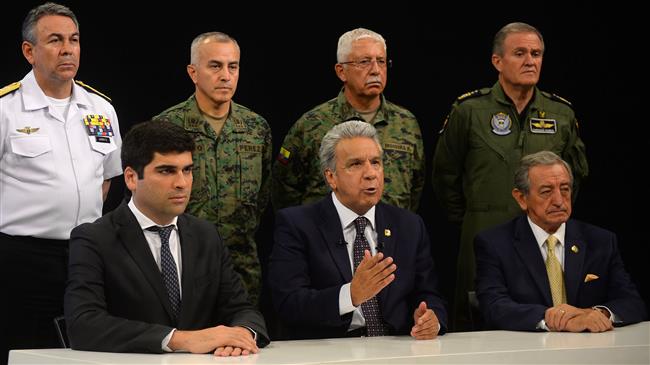

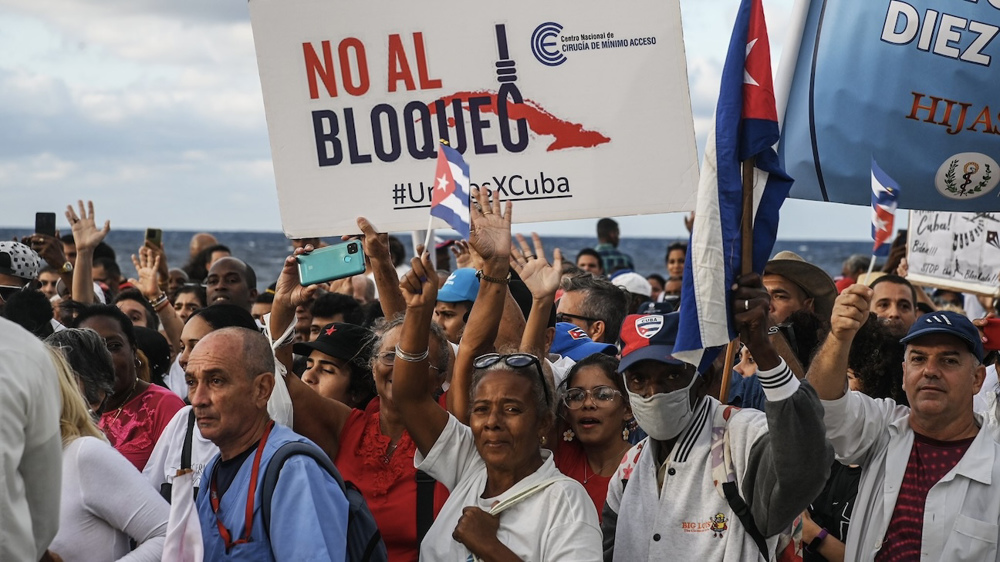
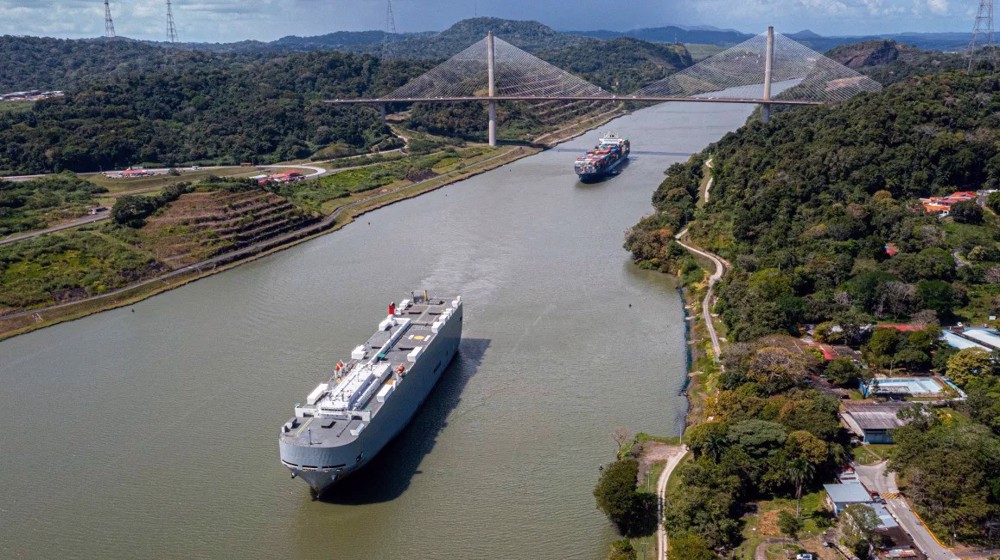
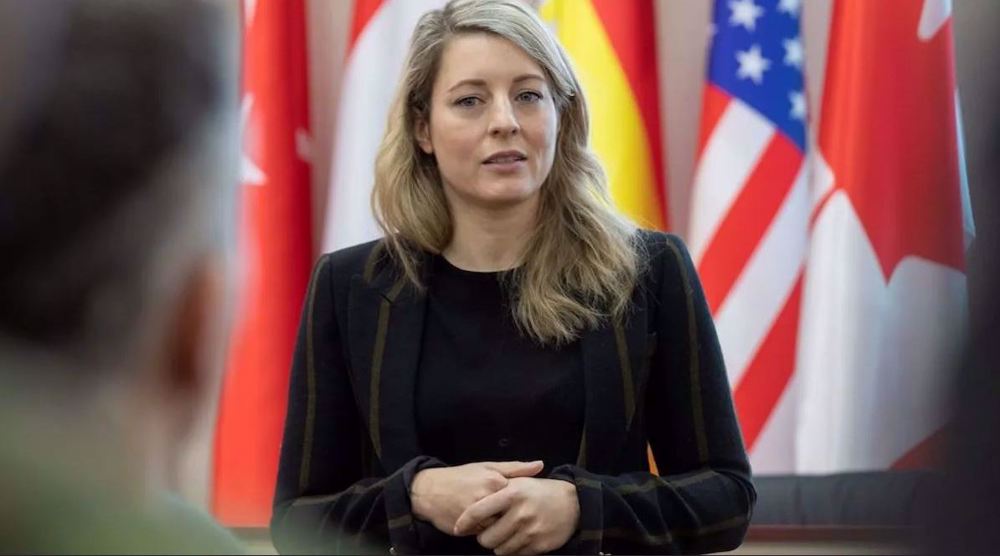



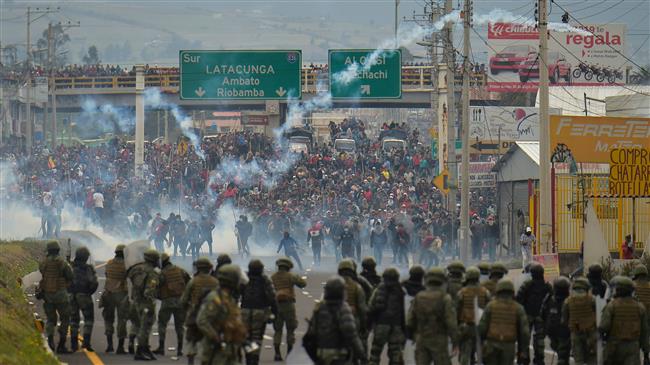
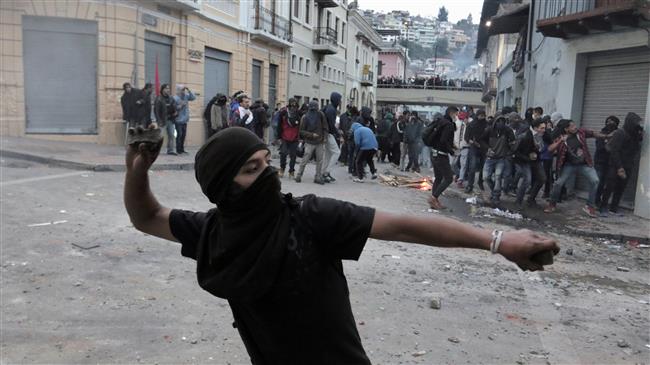
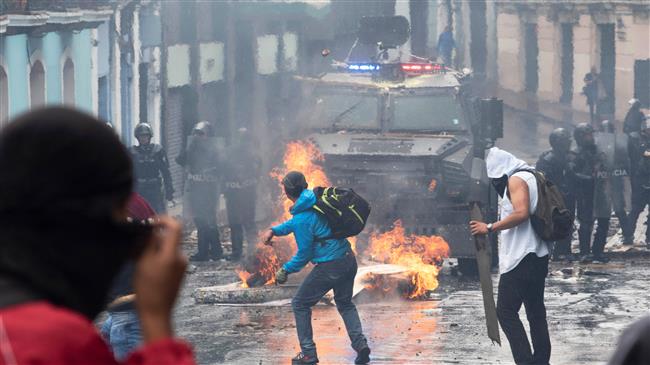

 This makes it easy to access the Press TV website
This makes it easy to access the Press TV website